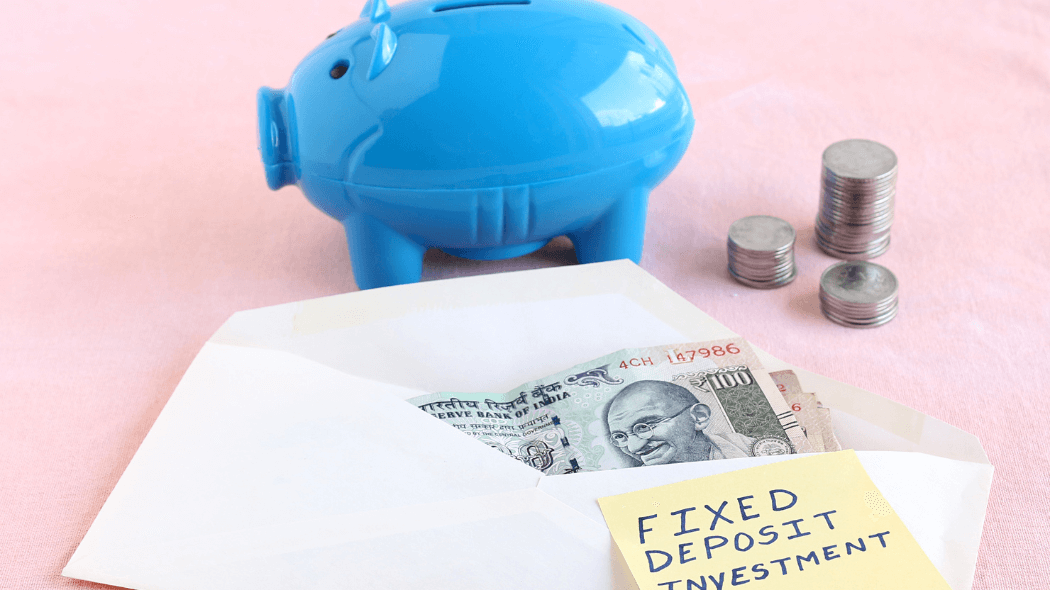
What if you can get FD-like security but higher returns?
Guess what? You absolutely can.
Corporate Fixed Deposits or Company Fixed Deposits offer all the FD features but with superior returns. You can invest in these FDs for a suitable tenure and earn desired returns by the end of the tenure.
Now, you must be wondering, are Corporate FDs safe? How does taxation work? How to invest in a corporate FD?
You will find answers to all your questions throughout this article. Let’s dive into it.
Corporate FDs are offered by Financial Companies or Non-Banking Financial Companies (NBFCs) such as Bajaj Finance, Mahindra & Mahindra, HDFC Ltd., etc. These companies raise funds from investors such as yourself and offer returns in exchange.
You can create an FD with financial companies or NBFCs for a specific tenure with the promised rate of interest. It’s a safer investment option with promised returns.
If you create a cumulative FD, you will earn interest on the amount as well as the previously earned interest. Cumulative FD can exponentially build wealth over the years.
Corporate FDs often deliver 1-2% higher interest rates than Bank FDs.
Here’s an example of various Bank FDs vs Bajaj Finance Corporate FD for a 5-year tenure.
FD rates for 5-year tenure as of Nov’22
|
|
ICICI Bank FD |
SBI Bank FD |
HDFC Bank FD |
Bajaj Finance Corporate FD |
|
General |
6.35% |
6.10% |
6.50% |
7.60% |
|
Senior Citizens |
6.85% |
6.60% |
7% |
7.85% |
If the corporate/NBFC promised 7% returns by the end of tenure, you are guaranteed to receive it.
However, keep in mind that only RBI-approved and higher-ranked Corporate FDs are safe to invest in. RBI has defined a set of rules that a corporation has to follow in order to raise money via FDs.
Corporate FDs offer a flexible tenure between 1-5 years. You can choose a tenure suitable for your financial goals. However, the interest rate may vary based on the tenure.
The higher the tenure, the higher the interest you will earn.
Both Bank and Corporate FDs have atleast 3 months penalty period for premature withdrawal as per RBI guidelines.
Corporate FDs often have a lower penalty period compared to bank FDs.
Not all corporate FDs are safe, at least not as safe as bank FDs. The performance of the Corporate/NBFC will affect the safety of the deposit.
With bank FDs, you get security on investments up to 1 Lakhs. Corporate FDs may not offer such security.
Invest only in companies that follow RBI guidelines, have public performance reports, and have higher ratings. This brings us to our next point.
Platforms like CRISIL often give ratings to various financial instruments. Corporate FDs also have ratings associated with them based on risk and performance.
Deposits with AAA to AA ratings are safer to invest in. Anything below the AA rating may have moderate to high risk.
Before investing in Corporate FDs, you must check the track record of the company. You can either do your own research or seek help from financial advisors.
Financial experts at VNN Wealth are more than happy to help you select the right Corporate FD to invest in.
Even though corporate FDs offer superior returns, those returns may not beat inflation. It all depends on the tax slab you fall under.
There is a chance that the returns after tax deduction might not align with inflation. In such a case, you must plan your investment horizon accordingly.
The interest earned via Corporate FDs comes under your annual income. You will have to pay tax on the interest earned according to your tax slab. So if you fall under the 20% tax slab, you have to pay 20% tax on the profits earned via corporate fixed deposits.
Corporate FDs are best suited for investors who are seeking secure and higher returns. You will get at least a 1-2% higher interest rate with a Company Fixed deposit compared to bank FD.
You have the flexibility to choose a suitable tenure. It will not only diversify your portfolio but will act as a cushion to your overall portfolio during bear markets.
Similar to bank FD, you can create a Corporate FD online. You will have to visit the website of the Company/NBFC to apply for the FD.
After completing the application and submitting the KYC details, you will be able to invest in the FD.
You may also like- FD vs Debt Funds: Where to Invest?

